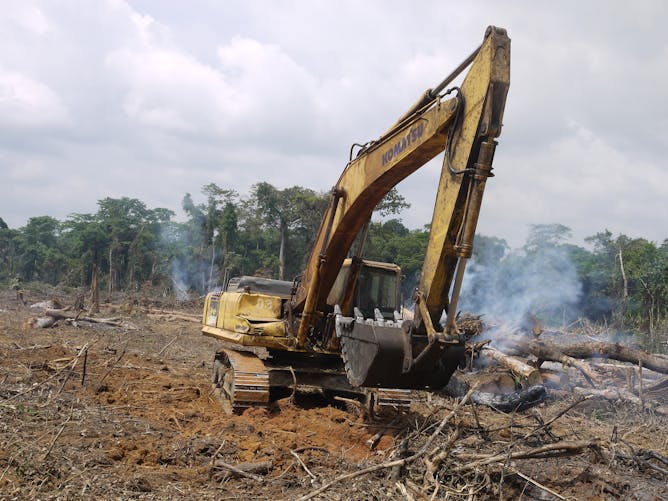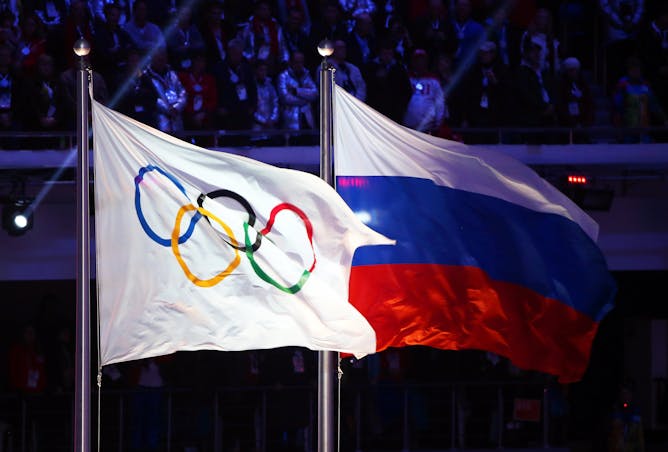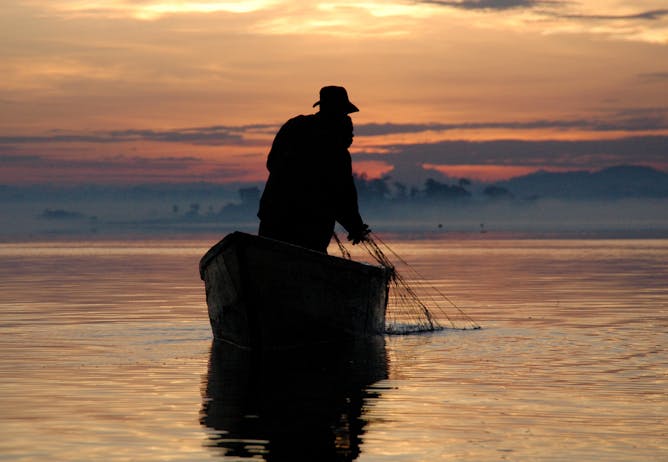|
China’s unbridled ambitions could affect the world in many positive ways. Its global programme of foreign investment and infrastructure development can bolster economic growth and food security, as well as enriching many poor nations. But what about the environmental consequences? Bill Laurance unpacks claims by the country’s leaders that it’s embracing “green development”.
Russia will not be allowed to participate in next year’s Winter Olympics in South Korea. It’s been banned from the competition by the International Olympic Committee because a state-sponsored doping regime was put in place for the 2014 Sochi Winter Olympics. Country bans are not unprecedented. But, explains Jack Anderson, Russia is the first nation to be punished for a lack of sporting integrity rather than for political reasons.
Migingo, an island in the Eastern waters of Lake Victoria, is barely the size of half a football pitch. It has become a popular spot for fishermen to hunt the Nile perch and developed into a tiny slum that houses hundreds of people. The increased commercial activity has sparked competing claims by Uganda and Kenya over who owns Migingo. Christopher R. Rossi discusses the important international legal issues at play.
|

A Chinese road-building corporation felling rainforest in the Congo Basin.
Bill Laurance
Bill Laurance, James Cook University
Chinese investment is driving an unprecedented investment boom in global infrastructure. But despite its claims to be pursuing green development, China's building bonanza is harming the planet.
|

The Russian flag will not fly at the 2018 Winter Olympics in South Korea.
EPA/Hannibal Hanschke
Jack Anderson, University of Melbourne
The ban on Russia competing in the 2018 Winter Olympics is unique: it is directly linked to the country’s lack of sporting integrity.
|

Ugandan fishermen pull in their nets at dawn in Lake Victoria, which is shared between Uganda, Kenya and Tanzania.
Reuters/Euan Denholm
Christopher R. Rossi, University of Iowa
The dispute between Uganda and Kenya over an islet half the size of a football pitch has been fuelled by the perceived imbalance in fish harvests and the prospects of oil reserves beneath.
|
Arts + Culture
|
-
Joel Rookwood, University of Central Lancashire
Fan parks will be a key tool at Russia's World Cup next year.
|
|
|
|
Environment + Energy
|
-
Robyn Grant, Manchester Metropolitan University
Blue Planet II reveals what fantastic predators they are.
|
|
Politics + Society
|
-
Regis Simo, University of the Witwatersrand
Cameroon's Anglophone crisis that's pitted its English speaking citizens against the central government could result in the country being denied preferential trade agreements with the US.
-
Muhammad Faiz Aziz, Indonesian Center for Law and Policy Studies (PSHK)
Indonesia is pushing for more infrastructure development projects. But the people relocated to make way for these projects have very little power to ensure their livelihoods are secure.
|
|